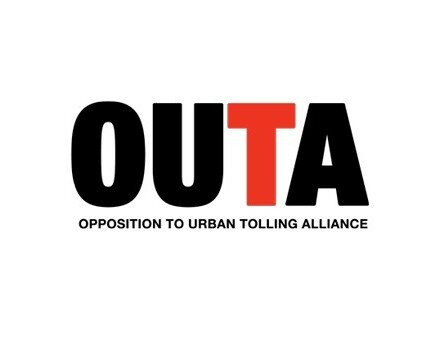
The Opposition to Urban Tolling Alliance (OUTA) remains defiant in its stance against e-tolling and has responded to Ruth Bengu, the parliamentary transport portfolio committee chairperson, who cautioned the civil group over its messages to the public.
“It is not a legal requirement to get an e-tag and the people must be made aware of this fact. OUTA have never supported the breaking of any law and we have never told people not to pay their e-toll bills,” said OUTA in a statement.
“We have merely warned the authorities of the many unintended consequences of forcing an irrational and seriously unpopular policy onto the citizens of South Africa, which will have the impact of inciting civil disobedience and which will compel many citizens to feel justified in their approach to break the law. Not our recommendation, but theirs.”
OUTA said it is not responsible for the public’s direct statements in expression of their frustrations and actions in response to the government’s plans, which were made “loud and clear” during public engagement sessions in November last year.
It referred to numerous blog discussions, responses to press statements, and the opinions of faith-based organisations to point out how the public at large feels about the e-tolling of Gauteng’s freeways.
“OUTA’s legal challenge is one avenue we have conducted to expose the wrongdoings of what it, along with many others have condemned as an ill-conceived plan which is not in the best interests of society,” said Wayne Duvenage, chairperson of OUTA.
Regarding future legal action and other possible avenues of opposition, OUTA said an announcement is yet to be made, but it does not condone civil disobedience.
“We do however call for civil courage, a more sustainable manner of active citizenry wherein people can exercise their legal rights to express their disgust at the lack of respect for citizens input,” said OUTA.
According to OUTA, not purchasing an e-tag is a legal right South Africans have to “snub a policy” they believe is not in their best interests.
“It’s a matter of personal conscience,” said OUTA.


















